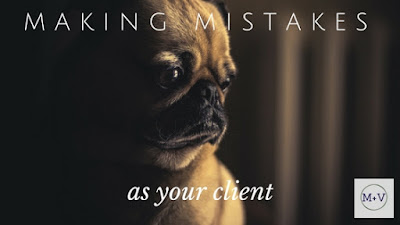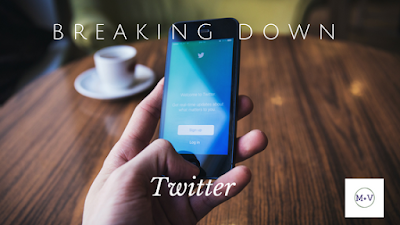Making Mistakes -- As Your Client
Making mistakes is bad enough when you do it at your own expense. It is several degrees of guilt and embarrassment worse when you do it on behalf of a client.
Possibly the most embarrassing thing to happen to me this week was making a simple, easily-corrected spelling error on a Facebook page for an author.
Yes, that's right, in transcribing the words of an author client from their own book, I spelled 'the' as 'thge' and missed the n in sunrise. *FACE PALM*
Luckily, a helpful Facebook commenter alerted me to my mistake (and only after about 360 people had already seen the post, oh God...).
Obviously in social media triage, step one: correct the mistake.
Step two: mia culpa, mia culpa, mia culpa. Especially when MIA CULPA, it was my mistake.
Step three: honesty is the ONLY policy. It doesn't hurt that you can pass off mistakes to members of hierarchy that may or may not be as hierarchical as the title would imply. If you're posting your own content, technically it is true that you were wearing your community manager's hat when you egregiously abused the English language, so it's a bit of a fib but it's not a lie. In short: throw that post writer under the bus as fast as you can. There is no shame in placing blame where it is due.
Step four: reply to the comment with previous steps in mind:
Possibly the most embarrassing thing to happen to me this week was making a simple, easily-corrected spelling error on a Facebook page for an author.
Yes, that's right, in transcribing the words of an author client from their own book, I spelled 'the' as 'thge' and missed the n in sunrise. *FACE PALM*
Luckily, a helpful Facebook commenter alerted me to my mistake (and only after about 360 people had already seen the post, oh God...).
Third sentence Thge should be spelled the, and last sentence, surise, should be spelled sunrise?? I'm guessing. Based on this, no I would not like to read any more if I will easily be confused of what you're talking about from misspellings of words. I should get a finders few for editing your book already. I like the idea of your book and the way that you include details in your writing. I just don't like being confused by your misspelling of words. You should edit this advertisement for your book.
Obviously in social media triage, step one: correct the mistake.
Step two: mia culpa, mia culpa, mia culpa. Especially when MIA CULPA, it was my mistake.
Step three: honesty is the ONLY policy. It doesn't hurt that you can pass off mistakes to members of hierarchy that may or may not be as hierarchical as the title would imply. If you're posting your own content, technically it is true that you were wearing your community manager's hat when you egregiously abused the English language, so it's a bit of a fib but it's not a lie. In short: throw that post writer under the bus as fast as you can. There is no shame in placing blame where it is due.
Step four: reply to the comment with previous steps in mind:
Hey [helpful Facebook commenter], thank you very much for letting us know about the spelling errors. That was entirely our community manager's fault, NOT the author's fault. We're sorry for the confusion, and we're especially sorry that we gave you a poor impression of the book as a result. We hope you'll forgive us, and that you'll take a look at the book on Amazon, where it was thoroughly proofread by professional editors before publication. Thank you for the edits, and we hope you have a great day.
Step four and a half: Try to save the situation as best as you can, and redirect back to something positive. Notice my attempt to win them back while legitimizing their complaint.
Step five: hide the comment. It will still be visible to the commenter and their friends, but not to anyone else. Which is exactly what you want as a business. The commenter feels addressed, and no one else needs to know about your mistake.
Of course, this is total gas-lighting. I believe the technical term is shadow banning. If your sassy comment to a company goes without response, or it seems like other people in the thread aren't reacting to what you said, you probably got shadow banned.
As an occasional user of this power, and a fellow Facebooker, I'm sorry.
Here's how to hide a comment from the post while on desktop:
You'll need to be in your page's business manager to do this. After commenting back, hover over the upper right corner of the offending comment. You'll see a small X. Click to hide the post. Your reply will be visible to that person, but not to anyone else.
Here's a screenshot of the original exchange.
Post Script: After my reply, the poster liked my comment and the original post. Once you've made the mistake, the best you can hope for is forgiveness, and it looks like this time, I got it.




Comments
Post a Comment